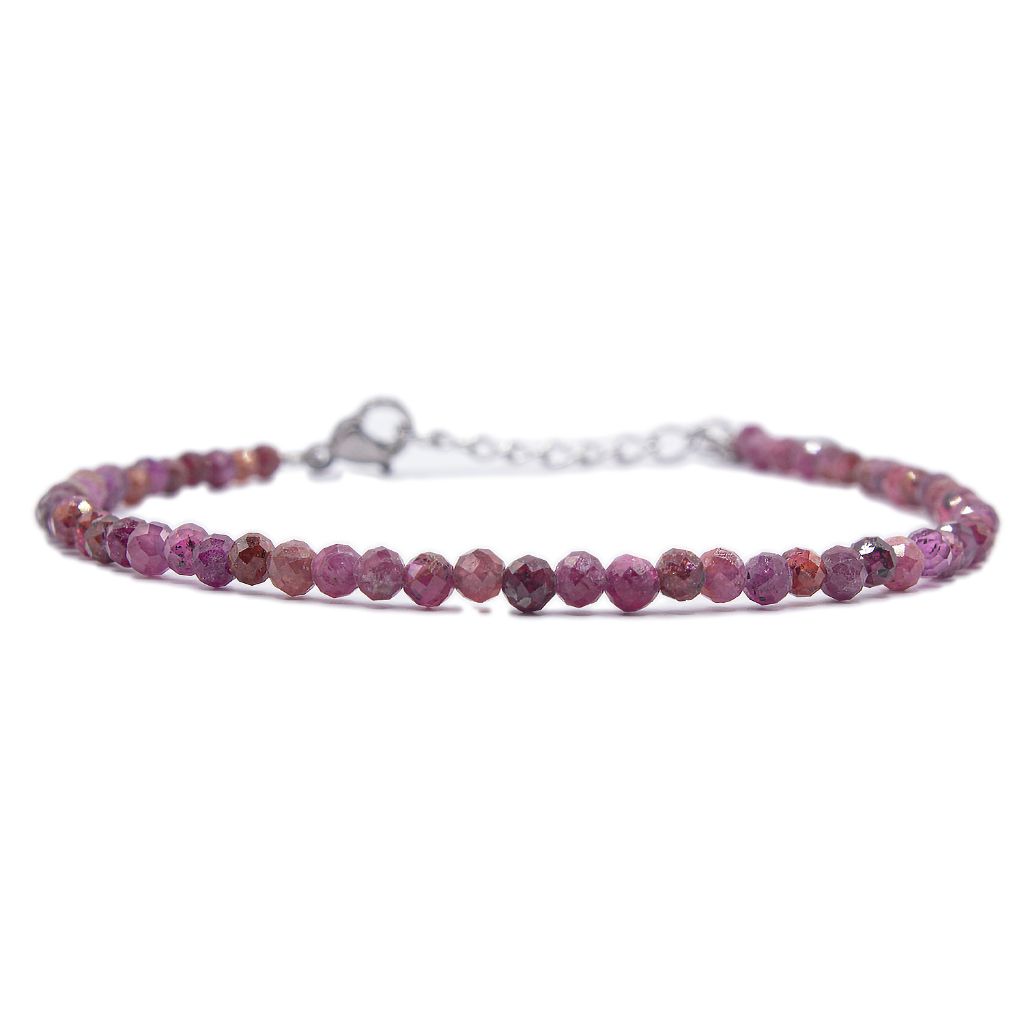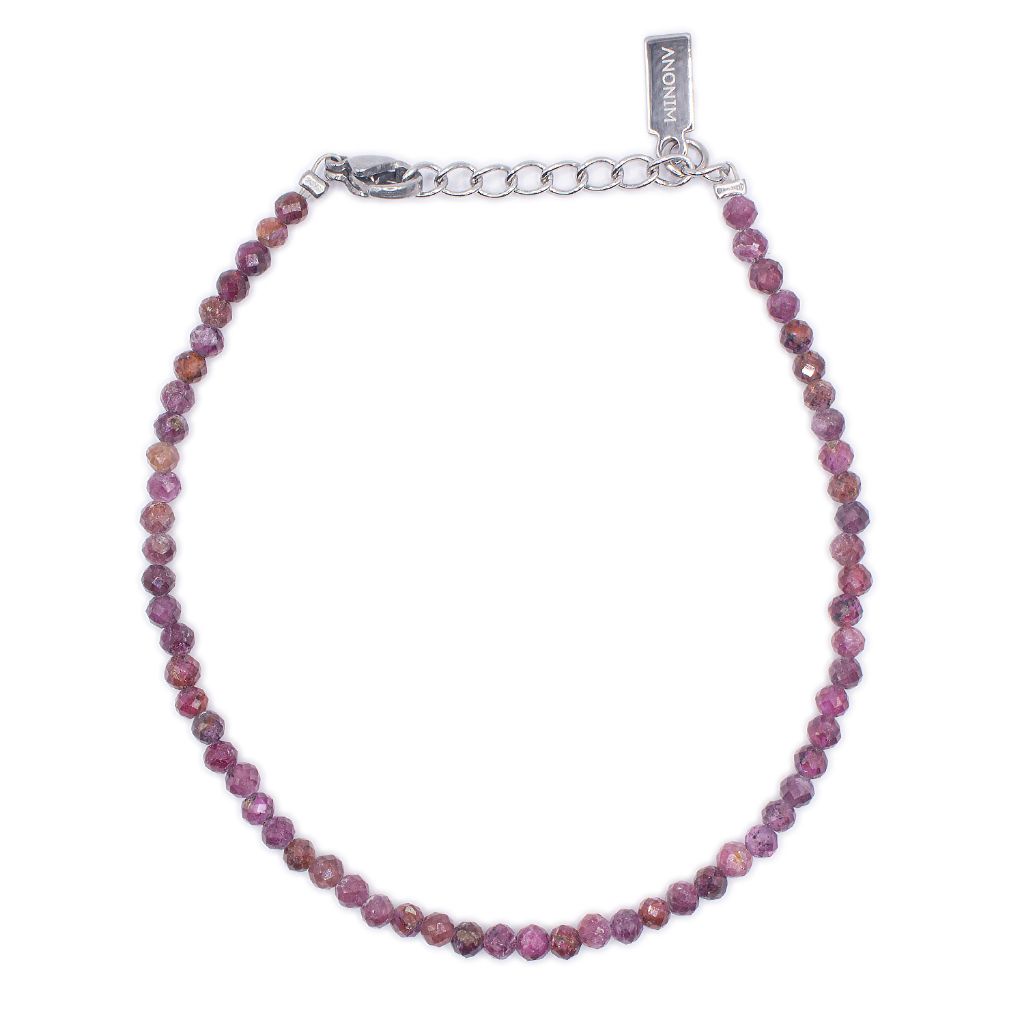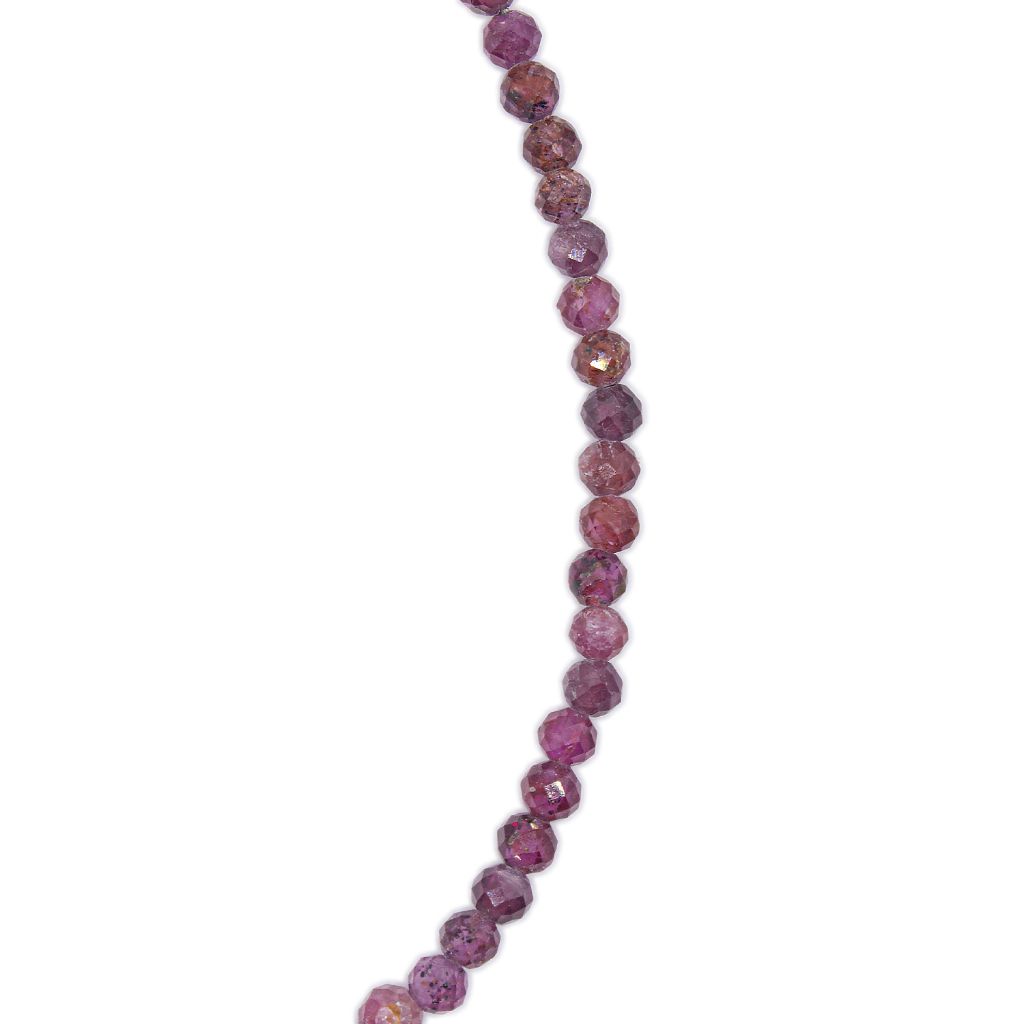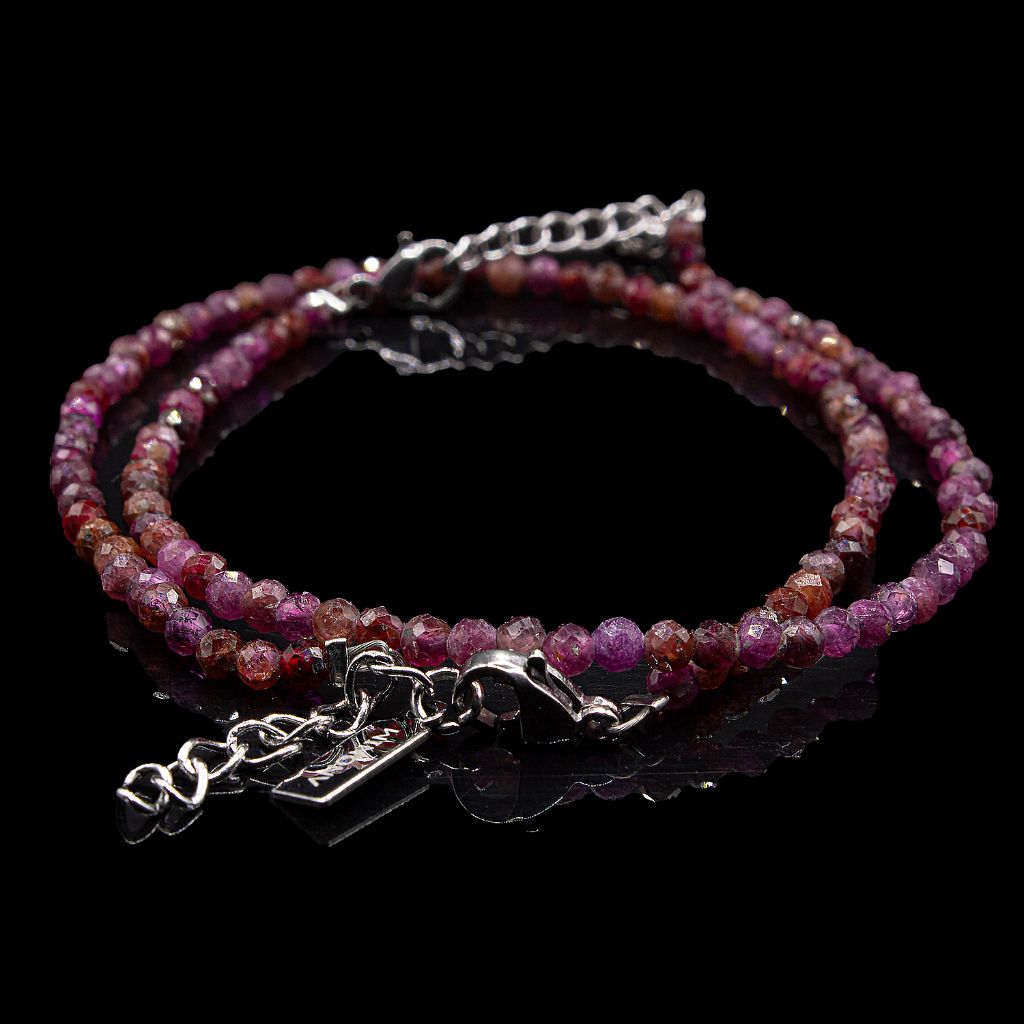Minimalist Series: Ruby Bracelet 2.5mm | Grade AA | Faceted
- Regular price
- RM 49.00
- Sale price
- RM 49.00
- Regular price
-
RM 0.00
Worldwide shipping
Secure payments
Authentic products
Share
- Bead Size: 2.5mm | Faceted
- Accessories: Anonim Tag | Stainless Steel
- Size Range: S(14cm) - XL(18cm)
- Symbolize: Ruby symbolizes passion, love, and vitality.
- Composition: Ruby is a variety of the mineral corundum, composed of aluminum oxide with traces of chromium that give it its red color.
- Color: Ruby is renowned for its intense red color, ranging from deep red to pinkish-red hues.
- Hardness: Ruby has a hardness of 9 on the Mohs scale, making it one of the hardest gemstones.
- Metaphysical properties: Ruby is believed to ignite passion and love in the wearer. It is associated with vitality, courage, and strength. Ruby is thought to enhance motivation and confidence, promoting a positive attitude towards life. It can also stimulate creativity and encourage the pursuit of one's dreams and goals. Ruby is considered a protective stone, offering protection from negative energies and bringing prosperity and abundance. It is often used for grounding energy, increasing life force energy, and fostering a connection with the heart chakra. Ruby is a stone of devotion and passion, often used to symbolize deep love and commitment.
It's important to note that the properties and beliefs associated with gemstones can vary across different cultures and individuals. While some people strongly believe in these properties, others may perceive them differently or focus more on the aesthetic value of gemstones.
Remember, these benefits are not scientifically proven, and individual experiences may vary. It's essential to approach gemstone properties with an open mind and personal belief, understanding that they are often considered complementary tools to support overall well-being rather than a substitute for professional medical advice or treatment.
×







